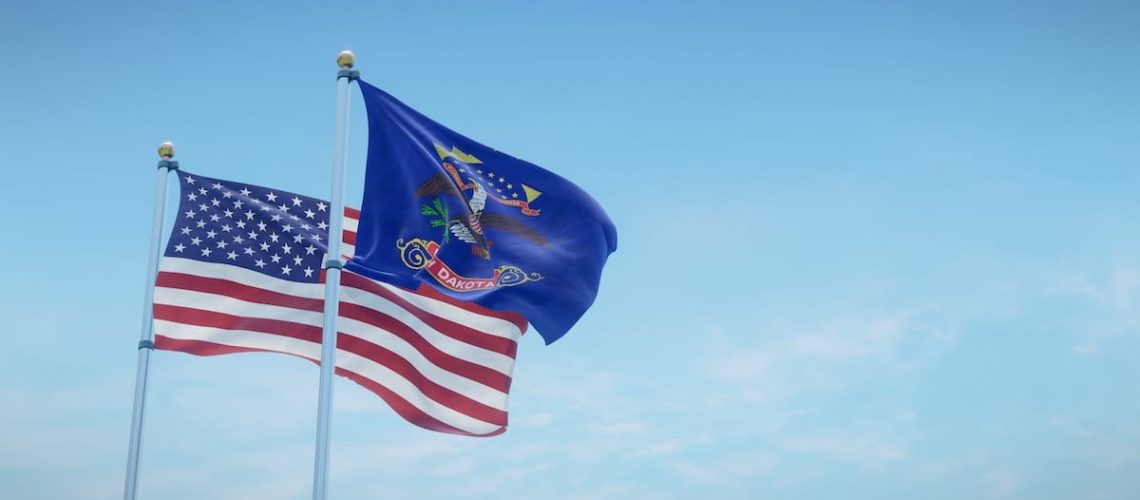In a pivotal ruling for religious freedom, U.S. District Judge Daniel Traynor has granted a preliminary injunction that temporarily protects the Catholic Diocese of Bismarck and the Catholic Benefits Association (CBA) from federal regulations that require religious employers to accommodate reproductive health decisions, such as abortion and in-vitro fertilization (IVF). The ruling, delivered on September 23, 2024, shields the plaintiffs from complying with federal mandates under the Pregnant Workers Fairness Act (PWFA) and related guidelines issued by the U.S. Equal Employment Opportunity Commission (EEOC).
The case emerged as part of a broader clash between religious liberty claims and federal anti-discrimination regulations. The CBA, representing over 1,000 Catholic employers across the country, along with the Diocese of Bismarck, argued that these federal regulations compel religious organizations to violate their deeply held beliefs regarding abortion, artificial reproduction, and gender identity. The plaintiffs assert that the EEOC’s mandates, which include protecting employees seeking reproductive healthcare, intrude on their First Amendment rights.
Legal Context and the PWFA
The Pregnant Workers Fairness Act, signed into law by President Biden in 2022, aims to provide accommodations for pregnant and postpartum employees, ensuring they have adequate workplace support. However, the EEOC’s interpretation of the PWFA also includes protections for individuals who make reproductive health decisions, such as obtaining abortions or IVF treatments. Furthermore, the EEOC extended its anti-discrimination guidelines under Title VII of the Civil Rights Act to cover LGBTQ workers, addressing issues related to gender identity and sexual orientation.
In their lawsuit, the Catholic plaintiffs argue that these provisions force them to act contrary to their faith, particularly in areas where the Catholic Church firmly opposes abortion and artificial means of conception. The lawsuit also challenges the EEOC’s guidelines regarding the use of pronouns and access to gender-specific facilities for transgender employees, which the plaintiffs say infringe on their ability to uphold Catholic teachings.
Judge Traynor’s Decision
Judge Traynor’s ruling provides temporary relief to the plaintiffs while the case proceeds through the courts. In his decision, Traynor emphasized the significance of protecting religious liberty, writing that the EEOC’s rules place an undue burden on Catholic organizations. He argued that forcing these organizations to comply with the mandates without adequate religious exemptions “places a substantial burden on the plaintiffs’ religious exercise.”
The judge also criticized the federal government for failing to justify the need for such regulations in religious workplaces. According to the ruling, the EEOC had not demonstrated a compelling interest that outweighed the burden on religious employers. As a result, Traynor’s injunction prevents the EEOC from enforcing these provisions on the Catholic plaintiffs while the lawsuit continues.
The Plaintiffs’ Arguments
The Catholic Benefits Association, a key plaintiff in the case, expressed relief following the court’s decision. Martin Nussbaum, an attorney representing the CBA, stated: “Given the profound moral issues the EEOC has created by its mandates, the members of the Catholic Benefits Association are grateful to have their religious rights vindicated by this order.”
The plaintiffs contend that without the court’s intervention, they would face substantial legal risks for adhering to their religious beliefs. The CBA argued that its members could be subject to thousands of enforcement actions for failing to comply with the federal mandates. “We’re living in fear that we’ll go through thousands of enforcement actions,” Nussbaum noted during the hearing.
The Diocese of Bismarck, another prominent plaintiff, echoed these concerns. The diocese believes that the regulations infringe on its ability to uphold core Catholic teachings, particularly in areas where Catholic doctrine strongly opposes abortion and artificial means of conception. They argue that the EEOC’s mandates leave no room for religious employers to practice their faith freely within the workplace.
Federal Response and Ongoing Litigation
In response to the lawsuit, the EEOC argued that the plaintiffs lacked standing to challenge the regulations, claiming that they had not provided sufficient evidence of imminent harm or legal action. Furthermore, the EEOC defended its interpretation of Title VII and the PWFA, asserting that its rules are consistent with previous federal court rulings and that religious exemption requests would be handled on a case-by-case basis.
Despite these arguments, Judge Traynor sided with the Catholic plaintiffs, concluding that they had demonstrated a substantial risk of harm. The preliminary injunction will remain in place while the court reviews the case in further detail, and it could set a significant precedent for how religious organizations interact with federal anti-discrimination laws moving forward.
Broader Implications
This ruling underscores the ongoing tension between religious liberty claims and federal regulations designed to protect reproductive and LGBTQ rights. As similar lawsuits arise across the United States, courts will continue to grapple with how to balance religious freedoms with anti-discrimination protections in the workplace.
While the outcome of this particular case remains uncertain, the preliminary injunction signals a victory for religious organizations seeking to defend their beliefs in the face of expanding federal mandates. However, it also raises questions about the future enforcement of the PWFA and Title VII, particularly in religious settings where moral and ethical objections to reproductive health services and gender identity accommodations remain deeply entrenched.
As the case progresses, its resolution could have far-reaching implications for both religious organizations and federal regulatory agencies. The ruling could shape the future of religious exemptions in the context of anti-discrimination laws, setting a precedent that may influence how courts navigate these complex issues in the years to come.
This article was first published on Pulse of Pride.
Feature photo credit: Shutterstock/HTGanzo. The images used are for illustrative purposes only and may not represent the actual people or places mentioned in the article.
For transparency, this content was partly developed with AI assistance and carefully curated by an experienced editor to be informative and ensure accuracy.

